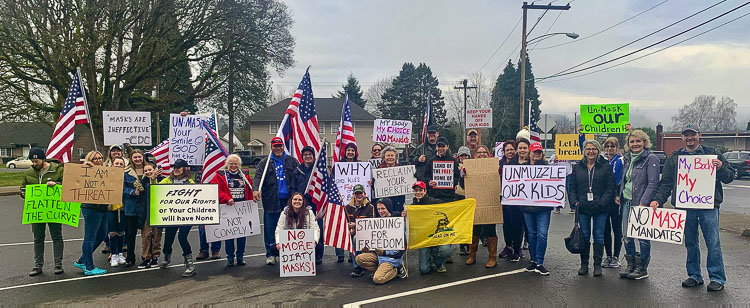People prefer ‘the risk’ to ‘government intrusion’
Art Moore
WND News Center
The Canadian province of Saskatchewan, bordering Montana and North Dakota, is the latest government to conclude that COVID-19 is “no longer a socially dangerous disease,” meaning restrictions and mandates should be lifted.
“It’s time to look at ending all remaining COVID measures and restrictions,” said the province’s premier, Scott Moe.
He explained that the move is not because COVID is over but because “people understand it better.”
“They understand what they need to do, they understand the risk, and they are prepared to live with that risk more than they are prepared to live with the ongoing government intrusion into their lives,” Moe said.

He explained that while some people may be against lifting the measures, it’s clear that “eradicating COVID is not realistic” or “achievable.”
“But normalizing COVID, or living with COVID, most certainly is,” the premier emphasized.
Moe said the “perpetual state of crisis is having a harmful impact on everyone.”
He noted he recently heard someone say, “I did everything right and I still got COVID.”
Moe explained that SARS-CoV-2 is a “highly transmissible virus that many people are contracting.” And in its current form, the omicron variant, “both vaccinated and unvaccinated people are getting it and they are getting it at virtually the same rate.”
It was the prime minister of Sweden, Magdalena Andersson, who told reporters Thursday in Stockholm that COVID-19 is “no longer a socially dangerous disease.”
“It’s time to open up,” she said while announcing all COVID restrictions would be lifted on Feb. 9.
Neighbors Norway, Finland and Denmark also have announced the end of COVID restrictions, along with the United Kingdom, Ireland, Switzerland and Lithuania. Danish Prime Minister Mette Frederiksen announced last week the lifting of restrictions in his country, which took effect Tuesday.
“We say goodbye to the restrictions and welcome the life we knew before,” Frederiksen said. “As of Feb. 1, Denmark will be open.”
The Danish prime minister acknowledged it “may seem strange that we want to remove restrictions given the high infection rates.”
“But fewer people become seriously ill,” he explained.
Last month, after the models upon which he based his policies proved to be “wildly incorrect,” British Prime Minister Boris Johnson announced the lifting of COVID-19 vaccine passports, mask mandates and work-from-home guidance in England. Regarding masks, the prime minister said the basic policy will be to “trust the judgment of the British people and no longer criminalize anyone who chooses not to wear one.”
In France, Prime Minister Jean Castex announced a timetable for dispensing with some COVID restrictions. Among them are the mandatory wearing of masks in outdoor locations and the closing of nightclubs and stadiums. The prime minister said the government could suspend its vaccine passports if the situation regarding the pandemic improves further.
Meanwhile, Austria on Tuesday became the first nation in the world to make it illegal to be unvaccinated. The government has ordered bars, cafes and restaurants to close at 11 p.m. And workers are advised to work from home when possible.
Austrian police are doing routine checks of vaccination status and issuing fines of up to 600 euros ($685) to people who cannot produce proof of vaccination. Pregnant women, those who can’t receive the vaccine due to medical reasons and those who recovered from the virus in the last six months are exempted.












